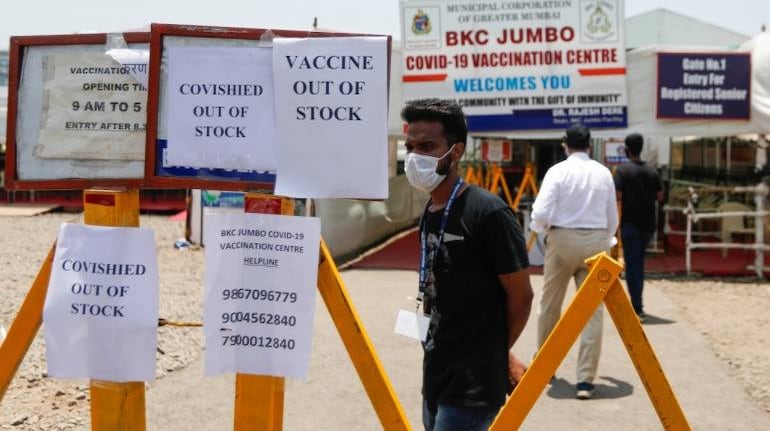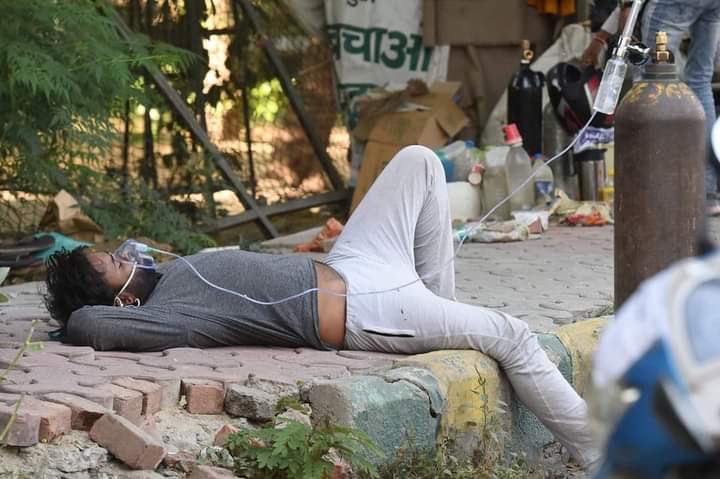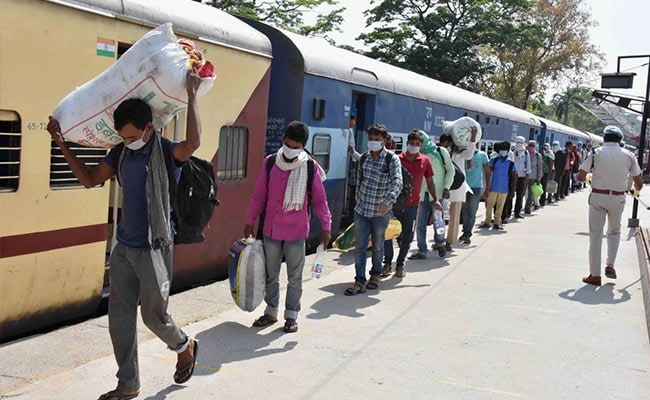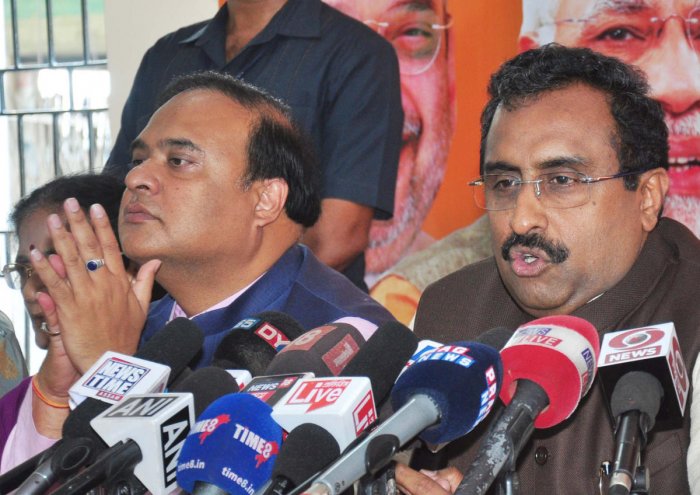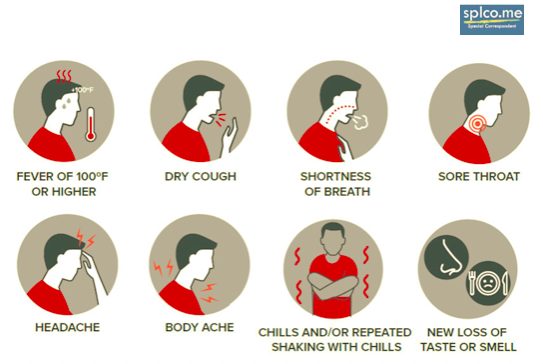The world’s second largest market for vaccines is India. The world’s largest vaccine producer is the Pune-based Serum Institute of India is in India.
But inspite this It is now known fact in India that we don’t have enough vaccines.
Citizens mill about in long lines, standing hours to get protected from a disease many will contract given the conditions in which they wait.
Many must take their chances another day because the vaccines run out.
All this in the midst of a deadly second wave that has taken new infections to over world highest 400,000 a day and deaths to 3,500 a day, on an official count alone.
Indians have been reduced to begging the world for help. Thanks to the missteps of Ruling establishment that led us to the misery of the second wave in our stride, the missteps on the vaccines are a new order of failure.
The planning, pricing and actual rollout are nothing short of a callous and culpable act for which the ordinary people of India will pay a terrible price in money spent, in lives lost and in terms of signaling the pharma giants of the world that India has become a place to make money even in the midst of untold misery.
Barely four years ago, the government of India under Narendra Modi stood up to a very strong effort from stent manufacturers and powerful trade lobbies to impose price control on stents, which were being sold at an exorbitant rate in India.
Prices were force-dropped 80% in some cases with the intention of making advanced cardiac care affordable for a wider section of the population.
Trade and the pharma business cried foul, issuing dire warnings of how the big companies will stop selling advanced stents in India and how patients would lose out but none of this happened.
Private hospitals did, however, raise their costs to make up on lost margins, one more indicator that the private sector in health is failing the nation.
Why then would such a government allow the Serum Institute of India, which makes the AstraZeneca-Oxford vaccine called ‘Covishield’, a juicy money-making deal on a direly-needed vaccine in the midst of a crisis is a million dollar question
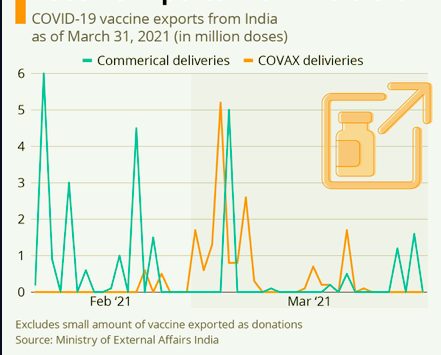
After a rapid surge of coronavirus infections in India, vaccine exports from the country have slowed to a trickle.
What is the secret behind this pact that will generate Rs. 60,000 crores in revenue, if one is to count just 50 crore people (roughly 40% of Indians) taking two doses each at Rs. 600 per dose in the private sector alone..
Would this not be a case of usurious profits when even at Rs. 150 a shot charged to the Union government, the company admittedly made money..
Why then charge four times when the people of India are dying all around us..
Similar questions can be asked of the other Indian vaccine manufacturer, the Hyderabad-based Bharat Biotech International, the manufacturer of the indigenous vaccine named ‘Covaxin’.
Further, what is the difference between the Union government and the State governments in so far as vaccination for citizens is concerned, with the former paying Rs.150 but the latter being charged a higher price of Rs.400 per dose?
After a hue and cry, this price then was reduced to Rs.300 per dose for the States, a drop of 25 per cent “as a philanthropic gesture” that “will…save countless lives,” as the CEO of the Serum Institute of India Adar Poonawalla put it.
Isn’t that an admission in some sense that vaccine manufacturers have been allowed to profiteer in so blatant a manner that philanthropy is being invoked to save lives?
Bharat Biotech followed suit, reducing the price of its vaccine to the States from Rs.600 to Rs.400 a dose.
Both companies are private sector entities entitled to their profits. They are also at the forefront of the war against Covid-19.
The Central government under normal circumstances must advise States to pay no more than it is paying, and negotiate with the suppliers for a bulk order with the Centre-State cost-sharing to be decided as policy.
Is it at all possible for a State authority to pay more for any set of goods and services that are bought in bulk at a price negotiated by the Centre, that too in an emergency..
A pandemic response demands that vaccination coverage be universal and free.
With numbers of doses known, orders could have been placed in advance. But BJP led Modi government did none of this.
In the initial days, it paid almost nothing to the companies to support or ramp up production.
It has instead now set the stage for public-private sector mismatches that will occur when a differential pricing system is used.
The sudden departure of Adar Poonawalla for Britain over the weekend in the midst of the crisis and his statements to the press there.
There is likely more here than we know or Poonawalla is willing to tell us just yet.
It is a pointer to just how much the issue of vaccines has been messed up, a mirror to the underhand nature of the dealings, and to the hubris, callousnessand dressing-up that has been the hallmark of the government’s response to the pandemic.
Consider that on April 19, the Prime Minister announced a “liberalised and accelerated phase 3 strategy” of vaccination effective May 1 that brought in a public-private distinction in vaccination.
Within two days, on April 21, Serum Institute announced differential pricing for States and the private sector, keeping silent on prices for the Centre.
On April 22, Dr. Krishna M. Ella, the founder-Chairman and MD of Bharat Biotech reportedly said that he would “like to get the maximum price…to recover all costs…”
Poonawalla is known for his high-flying ways. Dr. Ella is known for his simple living. Both have now begun talking a language of profit maximisation in the midst of a crisis where bodies are lined up in crematoriums across India.
This is quite a change from the vision of the founder of Serum Institute, Dr. Cyrus Poonawalla, the current CEO’s father, who has often stressed sacrificing profits to make vaccines affordable.
Worse, the current pricing games are about a vaccine that has not yet been licensed, and is only approved for “restricted use in an emergency situation” (for Covishield) and for “restricted use under clinical trial mode” (for Covaxin).
Because of this licensing condition, these vaccines technically cannot be sold, at least not yet.
It may be futile to look to the vaccine makers for answers when the government of the day is mired in games and projections, not facts and solutions.
It would have been possible to have both the vaccine makers, Serum Institute and Bharat Biotech, stand tall and write a story of grit and growth; to be affordable and profitable.
If they didn’t play along, compulsory licensing was always a reasonable and legitimate way out for the government.
We could have said when the time came, we stood together and tall. Alas, we were all pulled down by the BJP government that is totally non transparent so far ..
By creating shortage and then giving the manufactures free hand means another scam on the making considering the volume of business 60000 Crores Indian Rupees ..

